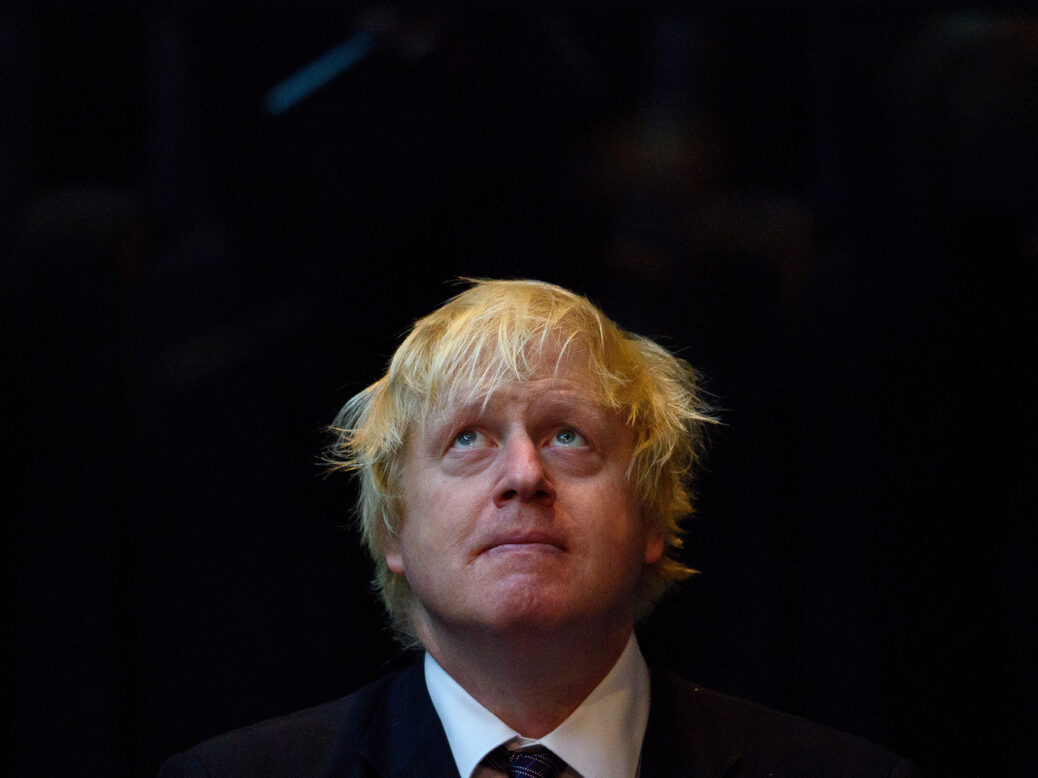
One of the more reliable sources of gallows humour for shadow cabinet members is the regular supply of updates they receive from voter focus groups run by Labour’s director of strategy, Deborah Mattinson. In a recent session, participants were extolling the virtues of Boris Johnson, with one describing the Prime Minister – a politician on his third marriage and who has fathered at least six children – as “a family man”. This prompted one despairing shadow minister to ask, “Whose family?” Another suggested the comment simply reflected how many families Johnson has created.
That the Prime Minister can be sincerely described by voters as a family man is evidence of his near-unique ability to avoid the sort of criticisms that would destroy the careers of other politicians.
Most Labour MPs dislike Johnson because they find him insufficiently serious and doubt his commitment to anything other than himself. Keir Starmer is particularly unimpressed: the notion that Johnson’s apparent flaws are “priced in” with the electorate is a reliable way to irritate the leader of the opposition. Starmer’s close allies suggest he thinks such an attitude encourages a certain fatalism among Labour MPs – a sense that the difficult work of opposing and scrutinising the government might be useless.
The notion that Johnson is politically invulnerable has a tendency to become self-fulfilling. Westminster scandals are, more often than not, considered in terms of their potential impact on the Prime Minister in parliament, rather than their consequences in the real world.
But the way Johnson is perceived within Westminster still matters. That’s because the Prime Minister’s relationship with his MPs is wholly transactional. Like Tony Blair, he has attracted MPs who thought he could win, but unlike Blair, he does not have a large body of supporters within his party. There are not many MPs who might be called Johnsonites.
[see also: Labour must forge a progressive alliance to defeat Boris Johnson’s rotten government]
He does have a handful of long-time loyalists, now mostly installed in positions of electoral significance – such as Nadine Dorries, the Culture Secretary; Nadhim Zahawi, the Education Secretary; and Kwasi Kwarteng at the business department. There are also faithful Johnson troopers in roles of considerable prestige within the Tory party, including the Defence Secretary Ben Wallace.
But if Johnson were to resign tomorrow, the next party leader would face little outcry from Tories over any departure from Johnsonite policies. If anything, the reverse is true. Many Conservatives fret about the Prime Minister’s recent tax pledges and are nervous about the scale of his undertaking to reach net zero carbon emissions by 2050. As one Tory puts it, the relationship between Johnson and most of his MPs is like a marriage based on looks: sooner or later, “beauty fades and the trouble starts”.
The row over Owen Paterson’s breach of lobbying rules is therefore damaging to Johnson for a number of reasons. The biggest is simply that the fiasco – in which MPs voted to overhaul parliament’s standards system before U-turning the next day – has reminded Westminster that the Prime Minister is mortal.
The Conservatives’ popularity has dipped recently, with a poll on 8 November putting them just one point ahead of Labour. This might have as much to do with the wage pressures caused by inflation, lingering dissatisfaction with Rishi Sunak’s Budget, or the sheen of the vaccine roll-out fading, as it does with the bungled attempt to rewrite parliament’s procedures and absolve Paterson. But the fallout from the latest sleaze row has not helped perceptions of the Prime Minister at Westminster.
It has also exposed important but neglected fault lines within the parliamentary Tory party. Most Conservative MPs were elected in 2010, 2015, 2017 or 2019. They have no experience of opposition, and those who won their seats from Labour or the Liberal Democrats – even if they have fat majorities – tend to regard themselves as precarious MPs in marginal seats. They resent the indulgences of an “officer class” of MPs in safe seats – those like Paterson, who was elected in 1997.
On the other hand, long-standing MPs and those in safer seats often complain privately that the recent intakes talk as if they were elected through their own efforts rather than those of the maligned officer class. “If I hear one more 2019-er talking about how they won their seat, I shall vomit,” one veteran Tory told me. “You won your seat because of Johnson, and a degree of silent gratitude wouldn’t go amiss.”
The Paterson row pitted the interests of the officer class against those of newer MPs in marginal seats. Although most Tories felt the anger of voters following the debacle, those in solidly blue seats can afford to be more relaxed. Conservative MPs in constituencies held by Labour as recently as 2019 may feel less comfortable.
Still, the Prime Minister is in a better position than the outcry over Paterson suggests. This parliament has some distance left to run, and the Tories will no doubt hold Paterson’s safe North Shropshire seat in the by-election triggered by his resignation. Having overestimated Johnson’s political strength, Westminster is now overestimating his weaknesses.
The Paterson scandal is a reminder of the unstable context in which the Prime Minister operates: he leads a parliamentary party whose members have no natural affection for him, nor much affection for each other.
[see also: Why Boris Johnson doesn’t want to ban MPs from having second jobs]
This article appears in the 10 Nov 2021 issue of the New Statesman, Behind the Masks




